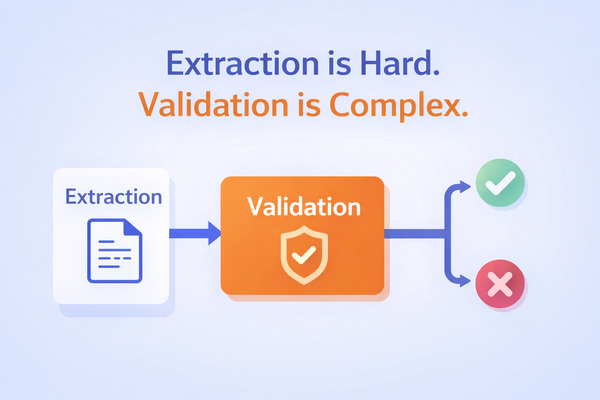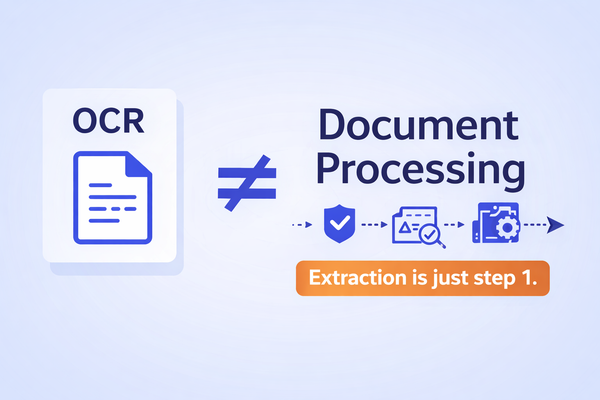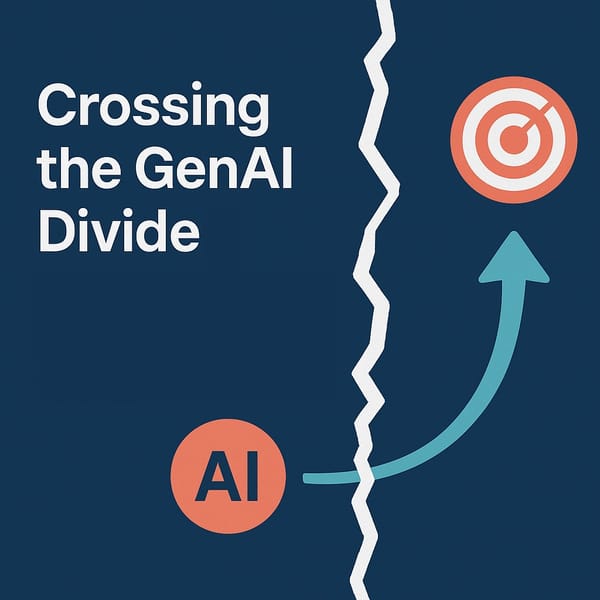3 Ways AI Is Helping Market Intelligence Firms Work Smarter
This is the first in a five-part series exploring how AI can help market intelligence firms overcome their most pressing operational challenges. In upcoming posts, we’ll take a deeper look at business development, knowledge management, and client engagement, with real-world examples and solutions.

Clients Are Moving Faster. Can You Keep Up?
Market intelligence teams are under pressure to move faster, personalize more, and deliver insights on demand. Clients expect quick, clear answers. And with tools like ChatGPT becoming common, the definition of “responsive” is changing.
To adapt, many firms have adopted familiar tools: CRMs for business development, SharePoint for research storage, and Microsoft Teams or email for client communication. But these systems often operate in silos. They weren't designed to work together or to deliver the right insight at the right moment.
The result? Knowledge gets buried. Analysts spend time searching for answers they already have, recreating old work, or fielding repeat questions.
At the same time, generative AI tools are everywhere. But clients still value more than just speed. They rely on the depth, context, and quality that market intelligence teams provide — things that generic AI cannot replicate.
AI isn't a replacement for expert insight. It's a way to scale it.
While there are many ways market intelligence firms can benefit from AI, this post focuses on three areas where the gains are both immediate and measurable:
- Business Development
- Knowledge Management
- Client Engagement
1. Business Development: Turning Knowledge into Revenue
Imagine this: a client sends over an urgent RFP. The BD lead knows the firm has done similar work before, but the relevant decks, summaries, and language are buried across emails, SharePoint folders, and old Teams threads.
The CRM tracks the opportunity, but it doesn’t help write the proposal.
Why Existing Tools Fall Short
- CRMs manage contacts and deal stages but not the intelligence that wins deals
- Proposal content is fragmented and manually assembled
- Marketing teams can’t scale personalized outreach with limited resources
How AI Helps
- Proposal intelligence agents pull content from past deliverables, case studies, and messaging, and draft tailored proposals in minutes
- Message personalization at scale for outreach, one-pagers, or pitch decks based on client industry, size, or priorities
- Auto-tagged knowledge libraries for reuse and consistency
AI doesn’t replace your CRM. It unlocks the insight buried in your systems and turns it into winning BD assets.
2. Knowledge Management: Making What You Know Work for You
Market intelligence firms don’t lack insights. They lack access.
SharePoint might house hundreds of research reports, transcripts, and analyst notes. But finding the right piece at the right time is still manual.
Why Existing Tools Fall Short
- File systems require exact titles or folders, with no context or flexibility
- Tribal knowledge remains in people’s heads or unstructured documents
- Onboarding new analysts is slow and inconsistent
How AI Helps
- Semantic search understands questions like “What do we know about sustainability in logistics?” instead of relying on exact phrases
- Insight extraction from unstructured content, such as PDFs, transcripts, and memos
- Knowledge graphs connect clients, topics, and projects automatically
- Intelligent version control ensures you’re reusing the best and most recent insight
AI transforms static repositories into living, searchable knowledge networks that actually support daily work.
3. Client Engagement: Meeting Expectations, Not Just SLAs
Clients today want more than deliverables. They want insight on demand. And many now compare their experience with your team to their experience using an LLM.
When your analysts are spending time digging for past answers or manually drafting briefings, response times suffer. Clients notice.
Why Existing Tools Fall Short
- Communication tools like email, Teams, or portals aren’t searchable or scalable
- Repetitive client questions consume high-value analyst time
- Customization requires more manual effort than teams can afford
How AI Helps
- White-labeled client-facing AI assistants give clients instant, branded access to insights and deliverables
- AI-generated briefings and updates tailored by industry, topic, or stakeholder
- Call summarization and next-step generation streamline post-meeting follow-up
AI helps your firm meet rising expectations without burning out your team or adding headcount.
How Agami Helps Market Intelligence Teams Work Smarter
Agami helps market intelligence firms deploy secure, enterprise-ready AI agents that integrate directly with your existing tools, from your CRM to SharePoint, Teams, Notion, and beyond.
With Agami, firms can:
- Accelerate proposals using AI agents that draft content based on your internal knowledge
- Unlock hidden insights trapped in files, transcripts, or past deliverables
- Empower clients with self-serve assistants trained on their research
- Surface answers instantly without switching systems or breaking workflows
Unlike public AI tools, Agami is built for compliance-sensitive environments and runs inside your infrastructure. Your data stays private, and your insights stay yours.
Want to see how Agami can work inside your firm? Book a demo →
📝 Coming Up Next - In our next post, we’ll dive deep into how AI is reshaping business development in market intelligence — including how to respond faster, win more deals, and differentiate in a crowded market.
Frequently Asked Questions (FAQ)
1. What are the biggest challenges market intelligence teams face today?
Many firms struggle with slow business development follow-ups, fragmented internal knowledge, and analysts spending time answering repetitive client questions instead of focusing on high-impact work.
2. Can tools like ChatGPT replace market intelligence teams?
No. While generative AI tools like ChatGPT provide fast responses, they lack the domain expertise, context, and trusted analysis that clients rely on market intelligence firms to deliver.
3. What tools do market intelligence firms use today?
Most firms rely on CRMs for business development, SharePoint for storing research, and email or Teams for communication. These tools work in isolation and make it difficult to connect knowledge or automate workflows.
4. How is Agami different from other AI platforms?
Agami works inside your existing tools and infrastructure, securely connecting internal knowledge and powering private AI agents. It helps analysts and business teams find, reuse, and deliver insights faster—without overhauling existing workflows.
5. What use cases benefit most from AI in market intelligence?
AI delivers the most immediate value in business development, knowledge management, and client engagement—helping teams move faster, reduce workload, and improve client experience.





